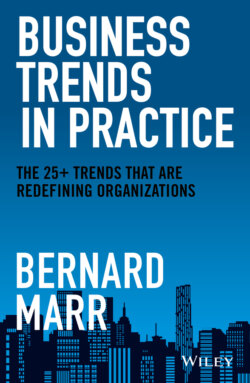Читать книгу Business Trends in Practice - Бернард Марр, Bernard Marr - Страница 41
The case for decentralized networks
ОглавлениеDecentralized networks can help to cut energy prices, reduce carbon emissions, empower communities, and improve energy security by offering energy independence and protection during emergencies. To put it another way, it's a smart way to meet growing demand, while improving sustainability.13
Already decentralized networks are taking shape in the UK. Aberdeen City Council, for example, turned to district heating – the supply of heat from one source to a district or group of buildings – to solve the problem of fuel poverty in some of the city's housing stock, reducing typical fuel costs for tenants by 50 percent and cutting carbon emissions by 45 percent in the process. The council has plans to extend the network beyond the 1,500 flats and handful of municipal buildings initially connected in the scheme, and the team is also helping other local authorities realize the same benefits.14
Elsewhere in the UK, Bristol City Council has been working with the Carbon Trust to develop four district energy schemes across the city with a goal of reducing carbon emissions, cutting costs, and supporting future development in the city.15 Meanwhile, in the US, startups like Urban Energy are enabling distributed energy by turning rooftops in New York into community solar gardens.
In other words, public bodies and consumers are already beginning to realize that they can do it better than established energy providers and are taking control of their own energy destiny.
